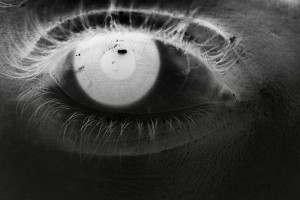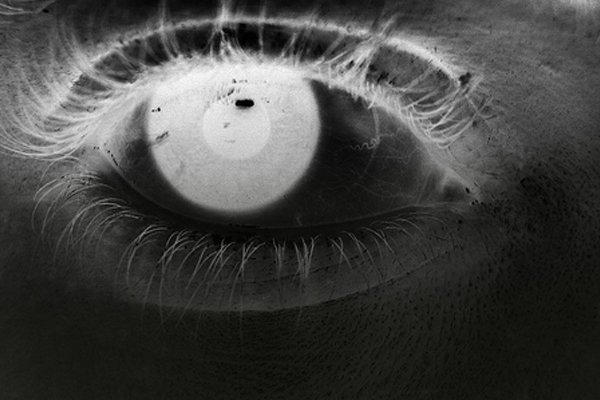
“Is God willing to prevent evil, but not able? Then he is not omnipotent. Is he able, but not willing? Then he is malevolent. Is he both able and willing? Then whence cometh evil? Is he neither able nor willing?”
There you have it: If a good, all-powerful, all loving God does exist, and we, as humans, are allegedly created in His “image”, why are people be so inclined to do immoral things? And why doesn’t this all-powerful God do something to stop evil, immoral behavior? A God such as this is either too impotent to stop evil, doesn’t care enough to act, or simply doesn’t exist in the first place.
But think about it for a minute. Which is more loving: a God who creates a world in which love is possible, or a God who creates a world in which love is impossible? It seems reasonable that a loving God (if He exists at all), would create a world where love is possible. A good God would create a world where love can be experienced and expressed by creatures designed “in His image”. But this kind of “love-possible” a world is, by necessity, a dangerous place. Love requires freedom.
True love requires that humans have the ability to freely choose; love cannot be forced if it is to be heartfelt and real. I cannot force my children, for example, to love me. Instead, I must demonstrate my love for them, provide them with the knowledge and moral wisdom necessary to make safe and loving choices, and then allow them the personal freedom to love one another and do the right thing. Eventually, as a parent, I have to let go, and this process of letting go is dangerous. In order for my kids to have the freedom to love, they also need the freedom to hate. Freedom of this nature is often costly. A world in which people have the freedom to love and perform great acts of kindness is also a world in which people have the freedom to hate and commit great acts of evil. You cannot have one without the other, and we understand this intuitively. Let’s consider an example.
Every year, millions of scissors are manufactured and sold in countries across the world. Everyone knows how valuable and useful scissors can be. No one is arguing for laws to prevent the manufacturing or sale of scissors; we understand how beneficial they are. Yet every year, hundreds of homicides and assaults are committed with scissors (I’ve actually investigated some of these). While scissors were designed for a good and useful purpose, they are often used to commit great evil. In a similar way, our personal “free agency” is a beautiful gift that allows us to love. It was intended to provide us the means through which we can love one another and even love God. But this freedom, like a pair of scissors, can be used for great evil as well if we choose to reject its original purpose.
Our free agency allows us to love and perform acts of kindness, and our eternal life provides the context for God to deal justly with those who choose to hate and perform acts of evil. Share on XAs Christians, we believe that God created us in His image. We have the freedom to love and we are eternal creatures who will live beyond our short existence on earth. Our free agency allows us to love and perform acts of kindness, and our eternal life provides the context for God to deal justly with those who choose to hate and perform acts of evil. God will do something to stop evil, immoral behavior, He is powerful enough to stop evil completely, and He does care about justice. But as an Eternal Being, He has the ability to address the issue on an eternal timeline. It’s not that God has failed to act; it’s simply that He has not chosen to act yet.
1 John 4:7-8
Beloved, let us love one another, for love is from God; and everyone who loves is born of God and knows God. The one who does not love does not know God, for God is love.
Compared to eternity, this temporal, earthly existence is but a vapor, created by good God to be a wonderful place where love is possible for those who choose it.

J. Warner Wallace is a Dateline featured Cold-Case Detective, Senior Fellow at the Colson Center for Christian Worldview, Adj. Professor of Christian Apologetics at Talbot School of Theology, Biola University, author of Cold-Case Christianity, God’s Crime Scene, and Forensic Faith, and creator of the Case Makers Academy for kids.
Subscribe to J. Warner’s Daily Email
J. Warner Wallace is a Dateline featured cold-case homicide detective, popular national speaker and best-selling author. He continues to consult on cold-case investigations while serving as a Senior Fellow at the Colson Center for Christian Worldview. He is also an Adj. Professor of Christian Apologetics at Talbot School of Theology, Biola University, and a faculty member at Summit Ministries. He holds a BA in Design (from CSULB), an MA in Architecture (from UCLA), and an MA in Theological Studies (from Gateway Seminary).







































Pingback: Did a Concern for the Species Influence Our Moral Development? | Cold Case Christianity
Pingback: Is God in Control or Are We in Control? | Cold Case Christianity
Pingback: Why Would a Good God Allow Pain and Suffering? – J. Warner Wallace | Truth2Freedom's Blog
Pingback: Why Would a Good God Allow Pain and Suffering? | The Christian Apologetics Alliance
Pingback: Failures of the Free Will Defense | richardmarlowe236
Pingback: Why Is God So Hidden? | Cold Case Christianity
Pingback: When the Essential Value of Law Enforcement Is Obvious | Cold Case Christianity
Pingback: Three Important Questions to Balance in the Wake of Newtown | Cold Case Christianity
Pingback: Why Would a Good God Allow Natural Evil? | Cold Case Christianity
Pingback: Why Would a Good God Allow Pain and Suffering? | Cold Case Christianity
Pingback: A Christian Response to the Murders at Aurora | Cold Case Christianity
Pingback: The Problem With Answering the Problem of Evil - Cross Examined - Christian Apologetic Ministry | Frank Turek | Christian Apologetics | Christian Apologetics Speakers
Pingback: The Problem With Answering the Problem of Evil | Apologetics ForumApologetics Forum
Pingback: 7 Keys to Answering the Problem of Evil | ChurchPastor.com
Pingback: The Problem with Answering the Problem of Evil | Anchor Apologetics – Best Answers in Christianity
Pingback: Why Would a Good God Allow So Much “Christian” Evil? | Cold Case Christianity
Pingback: What Does Christianity Say About the Nature of Humans? - Cross Examined - Christian Apologetic Ministry | Frank Turek | Christian Apologetics | Christian Apologetics Speakers
Pingback: What Does Christianity Say About the Nature of Humans? | Cold Case Christianity
Pingback: Resources to Help You Respond to the Problem of Evil (Free Bible Insert) | Apologetics.com
Pingback: Por que um Deus bondoso permitiria o mal moral? – Perspectiva Cristã
Pingback: SiftingPoint | Why Would a Good God Allow Pain and Suffering?
Pingback: What Does Christianity Say About the Nature of Humans? Five Honest Realities – Apologetics Ministry
Pingback: Why Is God So Hidden?
Pingback: ¿Por qué un Dios bueno permitiría el mal natural?
Pingback
April 19, 2021 at 6:39 am
how do i know to trust this and why should i think that it is true?